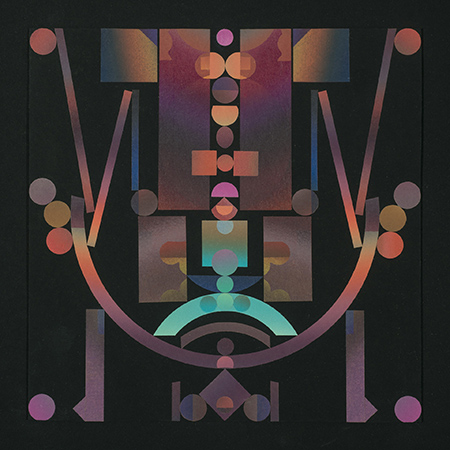
Continuing through July 11, 2015
Two printmakers are presented here in conjunction with PrintHouston, an annual citywide June festival in which many local galleries participate. Juergen Strunck is a well-known Texas artist who was born in Germany in 1943 and recently retired after teaching at University of Dallas since 1968. His prints are complex figurative abstractions created with patterns of luminous color, much like a rainbow in which there is a smooth gradation of one color into the next. Strunck prints on Japanese paper, which pulls fine details from the plate, and uses a process known as chine-collé, in which the image is created and then transferred to a surface that is bonded to a heavier support. He cuts the finished prints into geometric shapes and arranges them in symmetrical patterns on a black background. The resulting compositions create the illusion of depth, as lighter colors push forward and darker shades recede. Strunck strives to use colors not present in nature, and he is not interested in narrative associations. He uses intriguing shapes and complex color relationships to explore visual perception to mesmerizing effect.
Jon Vogt is a young artist who received his MFA in printmaking this past spring from University of North Texas at Denton. He also holds a certificate from the Tamarind Institute for Lithography. He experiments with traditional printmaking and digital tools to make abstract prints that emit intense optical vibrations. Similar to Strunck, whose work he has long admired, Vogt creates relief prints and cuts them into tiny pieces before reassembling them into highly detailed collages. The results are arrangements of colorful intersecting lines or black and white rectangles that create the illusion of movement. Like Strunck, he investigates perceptual phenomena and strives to create a rich sensory experience for the viewer. As a musician, Vogt draws on the relationship between art and music in his creative process, taking into consideration their shared qualities of rhythm, meter, vibration, pattern, texture and harmony. His process is highly experimental, a crossbreeding of media he achieves using a variety of tools ranging from laser and razor cutting to projection and digital technology. Each work of art undergoes multiple stages of development and reconfiguration before it is complete.
